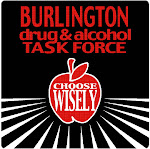Boston Globe
August 3, 2010
The following is a press release from the office of Representative Charley Murphy:
Representative Charley Murphy hailed House passage of a bill which provides a critical treatment option to a growing number of Massachusetts families who suffer the destructive effects of inhalant abuse.
Commonly referred to as huffing, and most prevalent among 12-17-year olds, inhalant abuse is the purposeful inhalation of chemical vapors to achieve intoxication. A recent study listed inhalants as the fourth most abused substance among high school students trailing only alcohol, cigarettes, and marijuana. Despite their growing numbers, current state law excludes many inhalant abusers from court-ordered substance abuse treatment programs.
“We have an increasing number of young people who need treatment for inhalant abuse but who are not getting the help they need,” Murphy said. “This bill seeks to remedy a critical shortfall in the existing statute so that we can reach these kids before they fall through the cracks.”
Under current state law, relatives, doctors, or law enforcement officials may petition a court to have alcohol or substance abusers committed for up to 30 days of treatment in a state-approved rehabilitation facility. Because many inhalants are not classified as controlled substances however, courts often lack statutory authority to commit huffing addicts to treatment.
“I wrote this bill with key input from police officers, substance abuse counselors, and parents,” Murphy said. “The stories they tell are of an especially menacing type of substance abuse and their shared sense of powerlessness to help many of those most at risk.”
The increasing pervasiveness of huffing has led to tough sanctions for the improper use, possession, purchase and sale of many inhalants. Still, experts identify a lack of awareness among community leaders as to the extent of the problem among young people. They hope Murphy’s bill will help sound the alarm.
“I have worked with Charley Murphy for 10 years to reduce youth substance abuse, including underage drinking, drug abuse and inhalant abuse,” said Marilyn G. Belmonte, Co-Chairperson of the Burlington Drug & Alcohol Task Force. “Most people do not realize how widespread inhalant abuse has become and that these chemicals are found in your kitchen, bathroom and garage. This bill could finally give us the power to treat the abusers and perhaps even prevent the abuse in the first place.”
Thursday, August 26, 2010
Ma Online Prescription Database
Massachusetts health officials approved a plan on Aug. 11 that will allow doctors and pharmacists to track narcotics prescriptions online -- a major step toward reducing "doctor shopping" in patients addicted to prescription drugs, officials said.
The Boston Globe reported Aug. 12 that the plan will give doctors and pharmacists access to an online database detailing patients' previous prescriptions for steroids and potent painkillers, such as OxyContin.
An estimated 9,000 Mass. residents are suspected of going from doctor to doctor seeking multiple prescriptions, said Alice Bonner, director of the Mass. Bureau of Health Care Safety and Quality.
"It's tough to know when you're prescribing opioids or any controlled substance for chronic pain whether you're doing benefit or harm,'' said Daniel Alford, senior physician at the Clinical Addiction Research and Education (CARE) Unit at Boston University School of Medicine. "The more tools we have to help us to know whether we're benefiting or harming the patient, the better off we are.''
The online prescription monitoring program is set to go into effect early next year. Officials estimate the program will save $2 million a year by detecting patients "doctor shopping" through the state's health insurance program.
The Boston Globe reported Aug. 12 that the plan will give doctors and pharmacists access to an online database detailing patients' previous prescriptions for steroids and potent painkillers, such as OxyContin.
An estimated 9,000 Mass. residents are suspected of going from doctor to doctor seeking multiple prescriptions, said Alice Bonner, director of the Mass. Bureau of Health Care Safety and Quality.
"It's tough to know when you're prescribing opioids or any controlled substance for chronic pain whether you're doing benefit or harm,'' said Daniel Alford, senior physician at the Clinical Addiction Research and Education (CARE) Unit at Boston University School of Medicine. "The more tools we have to help us to know whether we're benefiting or harming the patient, the better off we are.''
The online prescription monitoring program is set to go into effect early next year. Officials estimate the program will save $2 million a year by detecting patients "doctor shopping" through the state's health insurance program.
Subscribe to:
Posts (Atom)
